Why is Will Smith one of the biggest movie stars of our time? And what can we learn from him to improve our own lives and success?
This book explains that Will Smith’s secret is… well… will. To be clear, I’m talking about willpower, also known as self discipline or work ethic. The man is naturally charismatic, but he also dedicated an extreme level of effort to his goals. That is how he achieved worldwide fame and hundreds of millions of dollars.
(Will is convinced no other actor in Hollywood worked as hard as him, except perhaps Tom Cruise who may be “a cyborg.”)
But for that success, there was a large cost. In this biography, Will Smith shares not only the laughs and successes, but also the tears and failures. Including all the emotional problems he struggled with AFTER achieving his greatest dreams.
And that’s probably why Oprah said this was the “best memoir” she ever read.
We should talk about something first… During the 2022 Oscars, a movie awards ceremony, Will Smith shockingly slapped the comedian Chris Rock live on stage, after the comedian joked about his wife’s appearance. For a few days, the incident was the biggest news in the world.
Will Smith publicly apologized for his action, calling it unacceptable and embarrassing. In the end, I think biographies like this can help us remember that while the movie theatre can make celebrities appear “larger than life,” they are in the end only human.
About Will Smith and Mark Manson
Will Smith (official site) is an actor, rapper and producer. He’s known for starring in The Fresh Prince of Bel-Air, Aladdin, Bad Boys, Suicide Squad, Men in Black, and many more movies. He set the record for being the actor starring in the most consecutive movies grossing over $100M.
Mark Manson (official site) is 3-time New York Times Bestselling author, best known for the self help book The Subtle Art of Not Giving a F*** (our summary). His books have sold over 15 million copies in total and his website is visited by 2 million readers every month.
🧱 1. Brick By Brick: The secret to overcoming procrastination and overwhelm is focusing on the ONE next doable action
Will Smith’s father is always called “Daddio.” Confident, tall, ambitious, the center of attention at every party. His mother was “Mom-mom.” College-educated, well-spoken, loved the piano.
Daddio had served in the military, where he learned a mindset of discipline that had served him well. Working hard every single day allowed Daddio to provide for his family and also control his inner demons most of the time (drinking and anger). He ran a small business named ACRAC, which serviced air conditioning and refrigeration machines.

Daddio wanted to teach his kids self-discipline. So when a large brick wall needed to be built at the front of his business, the job was given to the 11 year old Will Smith and his younger brother.
To their young minds, this job was enormous and completely overwhelming. It felt like they would be working forever. (The wall ended up taking one year to complete.)
One day, while the kids were grumbling on the job, his father taught a lesson that would change everything for Will: There is no wall, there are only individual bricks.
What does that mean?
When we think about accomplishing a long-term project (like building a huge wall), then we are often overwhelmed. But we can remain motivated by focusing really small on the next doable action (laying the next brick).
It reminds me of that old wise saying… How do you eat an elephant? One bite at a time.
In the mega-popular book Atomic Habits, the productivity expert James Clear explores a similar concept when he talks about Goals vs Systems. He wrote, “Goals are about the results you want to achieve. Systems are about the processes that lead to those results.”
If we want to actually achieve our goals, then we should focus on our daily systems, processes, and habits. This is true whether we want to write a book, lose weight, or build a wall. With the right daily habits, then results will come inevitably. And then larger projects become achievable. Day by day. Brick by brick.
For example, an aspiring writer could set a rule where they write a minimum of 200 words per day. This is a very small and doable action. (Most of the time, after they begin writing they will start to feel more inspired, and they will end up writing much more than 200 words.) After a few months, the book will be complete.
When Will Smith was 11 years old, his father made him build a large brick wall for a year. The project taught Will the most valuable lesson for success in his career: to accomplish anything, forget about your overwhelming long term goal (the wall), and instead focus on the ONE next doable action (the brick).
🎭 2. Understand Your Fears: Young Will’s personality as a performer was a response to the fear of being seen as a weak coward
Will Smith’s worst memory of childhood was seeing his father punch his mother so hard in the head that she collapsed. As a young child, he did nothing but could only watch. But that moment defined Will’s deep inner identity as a coward. Yes, a coward.
(I was surprised to read this because most of Will’s movie characters are cocky, fearless heroes. He says “Will Smith” as we know him is actually a character designed to hide and protect that inner coward filled with fear and weakness.)
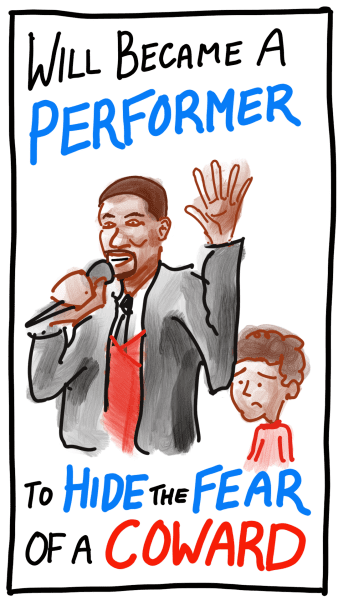
Being funny was Will’s response to his fears:
- At home, he became an entertainer, always trying to make people around him light and joyful. If people were laughing, especially his dad, then home was a safe place.
- At school, he was a class clown, making the other students and teachers laugh. In one class, the teacher would always call him “Prince Charming” and that’s where Will’s future nickname was born: “The Fresh Prince.”
- At church, he always admired a visiting pastor named Reverend Ronald West that was so charismatic and energizing that he made the whole building come alive.
Will’s grandmother was called “Gigi.” She represented God, love, and service to others. A defining moment of Will’s life was playing a song on the piano during an Easter service in front of the entire church. The look of pride he saw on Gigi’s face was immeasurable, a feeling of approval he’s been trying to relive his whole career as a performer.
Let’s discuss and analyze this part of the book for a minute. I think Will Smith’s inner struggle with feeling weak was actually related to a universal fear of men. Let me explain…
Recently on growthsummary.com we featured a classic relationships book called Men Are From Mars, Women Are From Venus. It’s written by a counselor named John Gray, who spent 35 years talking to thousands of men and women. While a few part of the book are outdated, I think he shares great insights about men’s psychology.
John Gray wrote, “A man’s deepest fear is that he is not good enough or that he is incompetent.”
For most men, their sense of self is directly tied to their power to achieve results on their own. That is why men so often are oriented towards achievement in their career and finances. It’s also why men tend to be resentful of feedback or correction from their partners. We can better understand men by seeing the fear that underlies their behaviors, which is often so confusing to their partners in a relationship
As a child, Will felt like a scared coward, especially when he saw his mom getting punched by his dad and did nothing. His personality grew in response to that fear, if he was being funny and making people laugh, then everything felt safe.
📉 3. Don’t Get Complacent: Will Smith’s fast rise as a rapper was followed by an even faster crash due to carelessness
Now let’s fast-forward through Will Smith’s young career as a rapper:
- He began rapping in high school, just as hiphop was rising as a dominant genre of music. Will would practice rhyming all day long, even while picking up the phone, and honing his delivery of lines in front of the mirror. He jumped into many “rap battles” against other students, where the goal was to insult the other person in the most funny and creative way. Building this talent gave Will confidence and popularity for the first time, because he felt like he had something to feel confident about.
- He met DJ Jazzy Jeff at a party by accident. Jeff’s own rapper didn’t show up, so Will offered to substitute. That night they had such close chemistry performing music, they naturally became partners, under the name “DJ Jazzy Jeff and The Fresh Prince.” Jeff came from a family of musicians, his home was filled with 10,000 records, and he appeared to do nothing else but practice making music for 14+ hours per day.
- Their first big hit was “Girls Ain’t Nothing But Trouble,” a song based on Will’s own funny stories meeting girls. Will vividly remembers packing bags of ice for Daddio’s business, feeling intense self doubt about his choice to skip college, when he heard his own song on the radio for the first time. It launched a very successful music career, with hundreds of live shows and millions of albums sold. They even won the first Grammy ever in the rap category for their song “Parents Just Don’t Understand.” Will went on a spending spree, buying multiple sports cars, motorcycles, and a mansion with a Jacuzzi… in the master bedroom.
But then everything fell apart.
Will Smith lost the fame, money, cars, and everything. How? Two reasons:
- Ignorance. Will Smith readily admits he “didn’t know sh**” in the beginning about the music business. After all, he was 17 years old. They were learning as they went, but made many mistakes along the way. In fact, that’s almost the entire journey of life, it’s about failing but then learning. For example, the first contract they signed was with a man named Dana Goodman, who didn’t actually have a music distribution company yet.
- Carelessness. Their third album “And in This Corner” bombed really badly. Will and Jeff had flown to a studio in the Bahamas to record, but instead they spent weeks partying, drinking rum, and eating chicken wings. Without a popular album, fans stopped buying tickets to shows. The worst part happened next. Will didn’t pay ANY taxes, on over $3 million of income! So the IRS came and took everything away.
Will’s story reminds me of a popular saying that goes, “Nothing fails like success.” What that means is that after people reach a level of success, it’s very common for us to become complacent. We lose the hunger to continue working harder than our competition, which leads to failure. This story also reminds me of another inspirational figure…
David Goggins is a Navy SEAL, an ultramarathon runner, and a motivational model to many. He represents self discipline and pushing past our old limits. But he wasn’t always that way. David Goggins survived childhood abuse and racism, and was on the way to failing high school because he’d spent years cheating.
One day he looked in the mirror and decided to “get real,” telling himself that nothing would change unless he woke up. So Goggins began waking up at 5 AM to work out in the gym, then studying all day to catch up academically. As he says, “I brainwashed myself into craving discomfort.” Later he would pass the military exam and join the Air Force, which he’d always dreamed of.
But this isn’t where the story ends. Nothing fails like success, remember?
In the military, Goggins fell off his habits of self discipline. 4 years later he was working a miserable job as a rat exterminator, and he was 100 pounds overweight because eating food was his escape. One day, he was drinking a huge chocolate milkshake when he saw an inspirational ad for Navy SEAL training that inspired him to change his life for the second time, for good.
In high school, Will began rapping against other students in “battles.” He met DJ Jazzy Jeff at a party by accident. They recorded some songs that became hits, went on tour, won a Grammy, made millions, but then lost everything due to carelessness—not paying any taxes and neglecting to work hard.
🌊 4. Venture Into Uncertainty: Life demands from us never-ending reinvention, a willingness to adapt and change
So, how did Will Smith dig his way out of that hole? How did he begin all over again as a young, formerly famous, penniless music artist… and rise to become a world-famous movie star worth hundreds of millions of dollars?
There was a clear theme to his actions: embracing uncertainty and going into the unknown. The next part of Will Smiths life is incredibly wild and exciting…
First, Will Smith decided to move to LA. He always loved the energy of the city and felt the biggest opportunities in entertainment were there. But there was a problem: he had zero money. Actually, he was in debt to the IRS. So he borrowed $10,000 from drug dealer gangster friend named Bucky. (Who was shot dead by the FBI three days later!)
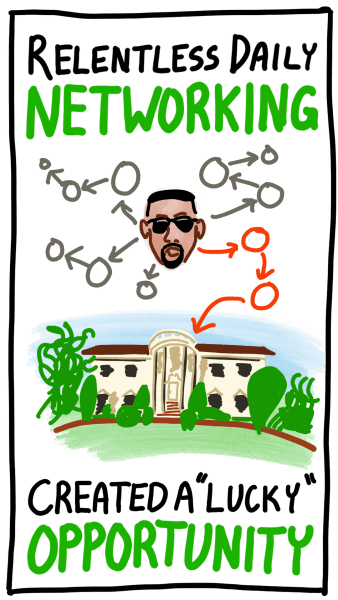
Second, Will’s plan was to network hard. He went to the set of the Arsenio Hall show every day for months, a place that many famous people hung out before filming. His friend/security Charlie Mack would drag over famous strangers and introduce them to Will, including Eddie Murphy.
One day, Will met a Warner Bros executive named Benny Medina, who was planning a TV show with Quincy Jones. Quincy Jones had produced Thriller by Michael Jackson, the best-selling album of all time.
Quincy phoned Will and invited him to come to his birthday party… happening that night. He was in Detroit when he received the phone call, so he rushed onto an airplane back to LA.
Third, Will risked public embarrassment auditioning. Quincy’s party was in a grand mansion in Bel-Air filled with the most powerful people in Hollywood. Inside, Quincy Jones was yelling across the living room to the guests, dressed in a jacket covered in a design of a piano keyboard.
Within a minute, Quincy was moving the furniture, telling Will he would be auditioning for the show right then and there. At first, Will panicked saying he needed more time to prepare, but Quincy pushed him to go for it. Then Will acted for 20 minutes in front of everyone at the party, including the head of NBC. Then Quincy told two lawyers to write contracts that very night.
Quincy Jones yelled over and over again, “No paralysis through analysis!” By the end of the night, there were signed agreements to film The Fresh Prince of Bel-Air. The TV series aired 6 months later in 1990 and was a big hit.
The Alchemist by Paulo Coelho is one of the bestselling books of all time, with over 65 million copies sold. It’s a story of a shepherd in Spain named Santiago who dreams of hidden treasure, and risks everything to follow his dream and his heart. Many call it a “self help book in disguise” because it contains many lessons that can inspire us to live better.
Will Smith also loves The Alchemist, calling it “the most influential book” in his life. He identified with the shepherd’s journey of risking everything to chase a dream in his heart. In the book this is called following our Personal Legend. What is that?
A Personal Legend is described as something a person has always wanted to do, but as they grew older they chose a different path because the world convinced them to go for what is practical, respectable, or safe. But at any time we can regain control of our lives and choose to take a different path. If we do, then magical things could happen for us. As The Alchemist says, “When you want something, all the universe conspires in helping you achieve it.”
Fourth, Will grew into a well-loved television actor. Will says filming a sitcom like The Fresh Prince is the greatest job in the world, like having fun all week with his new television family. But there was also serious work and growth happening on the set. Will looked up to James Avery as a master actor, the man who played Will’s dad on the show. James would often urge Will to hone his craft through effort and commitment.
Fifth, Will got married. In a fascinating twist, he actually met his second (current) wife Jada first, in a brief interaction outside the set of The Fresh Prince show. Later he wanted to talk with her more, so he dropped into the audience of a live show she was acting in. There he met a different woman named Sheree, they connected with humour and were married 3 months later. They had a child named Trey, the moment will saw the baby something clicked in him to provide and protect as a father.
But then they got divorced. This was a huge shock to Will, who didn’t expect divorce was possible, he took the vows literally “till death do us part.” Just 5 days later, he reconnected with Jada, his dream woman. They were married soon afterward and had a second boy named Jaden.
The next stage of Will’s life contained an incredible degree of uncertainty and change, in response he learned to endlessly adapt and adjust. First he moved to LA and met lots of people at the Arsenio Hall Show set. He auditioned at Quincy Jones’ birthday party to land his big break as The Fresh Prince of Bel-Air. Then he put lots of sweat in growing as an actor and honing his craft.
📣 5. Promote Relentlessly: Arnold Schwarzenegger gave Will the best advice ever for becoming the biggest movie star
Will Smith’s goal was to become “the biggest movie star in the world.” This was embarrassing for him to admit to anyone but his close friend and manager JL. (Remember, back then he was only a young comedic actor with one successful sitcom on TV!)
That ultimate vision shaped his life. For years, he didn’t have one alcoholic drink or go out on the weekends. He even broke up with his girlfriend at the time Tanya, because she wouldn’t stop smoking marijuana. JL was busy reading 100 screenplays, finding the right move role for Will.
One day, Will was offered $10 million to star in a gangster movie, but he (painfully) turned it down, on the advice of JL. Why? Because they felt the gangster role would have actually hurt Will’s chances of becoming the biggest movie star, of reaching his real goal.
A short time later, Will did accept a different role in the 1993 movie Six Degrees of Separation. The role paid just $300,000, but they felt it was the perfect step for Will’s career, because he’d be surrounded by respected actors. The movie was highly praised by critics, successfully establishing Will as a more serious actor.
“Begin with the end in mind” is the 2nd habit in The 7 Habits of Highly Effective People, one of the bestselling self help books of all time. That means to be effective, we need a strong vision that will dictate our actions over months and years.
It may sound obvious, but many of us are so busy “being productive,” that we forget about the most important question: Where am I going?
The author Stephen Covey says we can get in touch with our ultimate goals by using imagination. Imagine your funeral after you’re gone. Who is there? What are they saying about your life? How do they remember you? Will Smith was able to turn down $10 million for a role early in his career because he knew what he wanted above all else.
Read more in The 7 Habits of Highly Effective People by Stephen Covey
Then Will Smith learned the most important “secret” for becoming a movie star, directly from Arnold Schwarzenegger.
In 1994, Will was invited to the opening of a restaurant called Planet Hollywood, where he saw the 3 biggest action movie stars talking: Schwarzenegger, Sylvester Stallone, and Bruce Willis. Will interrupted and told them he wanted to become the biggest movie star, asking how to do it.
Arnold replied sincerely with the advice that to become the biggest movie star, you must promote a movie worldwide, similar to a politician running for office. This strategy became Will Smith’s “secret weapon” because after that he would always travel to dozens of countries promoting each new movie. Most actors hate promotion and interviews, so he gained an incredible advantage simply by outworking everyone AFTER the movie was filmed.
In Arnold Schwarzenegger’s own autobiography Total Recall, he stresses the importance of selling for success. He wrote, “I saw myself as a businessman first. Too many actors, writers, and artists think that marketing is beneath them. But no matter what you do in life, selling is part of it.”
For Arnold, selling is simply making people aware of what you’ve done. Because if you make the best movie in the world, but nobody sees it, then you won’t get paid! So he always believed after a movie was filmed, his job was only half done. I think it’s a great lesson for any creative person!
From then, Will Smith began his incredible run of successful movies:
- Bad Boys in 1995. A buddy cop action comedy made with popular television comedian Martin Lawrence and a young director named Michael Bay.
- Independence Day in 1996. A movie about an alien invasion that became the second-highest grossing movie of all time at the box office, catapulting Will Smith into stardom.
- Men in Black in 1997. Another sci-fi movie about aliens. This one was produced by Steven Spielberg, who personally taught Will a lot about movies and storytelling.
The most important concept from Spielberg was “The Hero’s Journey.” This is an idea from the writer Joseph Campbell, who found a common pattern shows up repeatedly in ALL the world’s greatest stories, myths, and even religions. From then on, when considering a new movie script, Will always looked for whether it matched “The Hero’s Journey.” (You can also learn more about this in the books of Jordan Peterson, a Professor who writes about psychology, myths, and religion.)
Will began with the end goal of becoming the biggest movie star. The vision shaped his life choices, including turning down $10 million for an improper role. Arnold Schwarzenegger gave him key career advice—to put in more work than any other actor in selling and promoting each movie. His big break was Independence Day in 1996, which broke box office records.
❤️ 6. Make Feelings Important: Despite achieving extraordinary outer success, Will found people around him miserable
For 10 years, Will Smith allowed his “inner warrior” to take over his life. He had extraordinary discipline and work ethic, working 70-80 hours per week, and barely taking a rest during holidays. All so he would have that competitive edge to win.
He knows the exact moment it happened. In 2001, Will was training for the role of Muhammad Ali, facing a real fighter in a boxing ring. Their fist hit him too hard and caused an electric shock to surge down his spine. His decision to get back up despite being stunned was a major turning point. His “inner warrior” was also fuelled by Darrell Foster, who trained Will for that movie and later transformed his life into a type of fight camp.
It worked. From 2002-2008 Will Smith was the lead actor in 8 consecutive #1 movies, that grossed over $100 million each. Including Men in Black II, I am Legend, and Hancock. No other actor has beat that record.
Even better, his family was winning, too:
- Trey was a star football player in high school,
- Jaden was building his own acting career, first in The Pursuit of Happyness with his father, then in The Karate Kid with Jackie Chan.
- Willow, his youngest 9 year old daughter, recorded a huge hit song called “Whip My Hair.” She went on tour with Justin Bieber and was talking with Jay-Z to make a record.
But in reality, Will Smith’s life was falling apart from the inside. He felt more stressed than ever, anxious about losing it all. He was learning firsthand that wealth and fame are not the same as happiness.
His relationships were cracking, too. Willow shaved her head in protest, after her dad ignored her desire to quit a music tour. Jaden asked about being emancipated, after his movie After Earth failed under Will’s leadership. Trey was studying faith and asked “Dad, what do you worship?” A question that haunted Will, because of his growing unhappiness.
But the biggest crack happened at his wife Jada’s 40th birthday party. Will had planned a highly elaborate 3-day celebration, but halfway through there was an emotional meltdown with the couple yelling at each other in the hotel. They decided to take a break from each other, to find happiness within themselves.
For 10 years, Will Smith’s life became all about achievement, working 80 hours per week. He went on an unmatched winning streak, with 8 straight #1 movies. But he neglected the feelings in himself and his relationships, causing himself and people around him to be miserable.
🧘 7. Look Silently Within: Will explored personal growth through solitude, reading, counselling, psychedelics and facing death
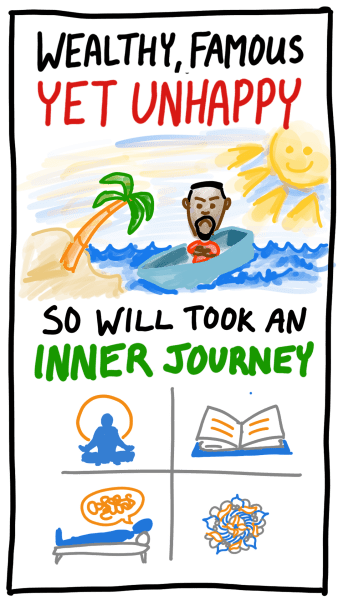
The next few years of Will Smith’s life marked a new period of inner exploration and growth:
- He visited Trinidad to escape his usual busy life. Will Smith contacted his ex Tanya, and asked her husband Scoty to show him around the Caribbean island. He found the slower pace of life incredibly frustrating and that he simply couldn’t relax like his companions. By the end, he knew that something important was missing in his life.
- He completed a 14-day silent retreat. Inspired by silent meditation retreats, Will went to his home in Utah to spent time alone with no talking, no television, no phone. The first day felt great, then it got worse and worse, but by day 10 things improved and he felt a burst of creativity. He read the book When Things Fall Apart by Pema Chodron, an American Buddhist monk. This is when he first tried meditation, which caused a feeling of peace.
- He read more books than ever in the following months. Including The Autobiography of Malcolm X, The Bhagavad Gita, The Road Less Traveled, Man’s Search for Meaning, How to Win Friends and Influence People, The 5 Love Languages, As A Man Thinketh, and many more. (We have summaries on several of those books.)
- He did counselling with psychologist Michaela Boehm. The biggest takeaway for Will was there was a part of his personality called “Uncle Fluffy” that is always trying to be liked. His goals in counselling was to become a “Freestanding Man” uncontrolled by other people’s approval or disapproval.
- He took ayahuasca, a psychedelic substance. It’s a disgusting brewed drink made from jungle vines that comes from Peru. Those who drink ayahuasca see visions and face the darkest parts of themselves. During his visions, Will met a profound female presence he called “Mother” who showed him the most beautiful place he’d ever seen, then said ‘this place is you.’ He cried suddenly realizing he didn’t need to perform to be worth something.
Another time, “Mother” repeated the words “stop talking” over and over again for hours, and when Will arose from the vision he felt incredible inner peace. From then on, he began a spiritual practice of minimizing his inner talking. (This reminds me of meditation practices taught in The Power of Now by Eckhart Tolle, who recommends we spend time each day observing our thoughts, which helps create inner space, calm, and peace.) - He went through his father’s death. Will knew Daddio was dying 3 months before it happened, which gave him more time to prepare for the event. He visited his father every week, and each visit felt immensely significant and filled with gratitude. Most of all, it helped Will understand what was important in life at the end was unconditional love and contributing to others in a useful way.
The final chapter of the book describe’s Will’s 50th birthday, when he decided to bungee jump… from a helicopter… over the Grand Canyon. A cynical person may view that as another publicity stunt, but from Will’s perspective it was about confronting fear, always. It’s a choice of how to live that has taken Will far, and he doesn’t intend to stop anytime soon.
The final chapters of Will’s book describe his attempts to find happiness within. He escaped to Trinidad but was unable to relax, so he tried a 14-day silent retreat including meditation and reading lots of books. Then he had visions on ayahuasca teaching him his inner beauty and to stop talking inside. He spent more time with Daddio before his death, learning the ultimate importance of unconditional love and useful contribution to others.
- Write down ONE next action you can complete tomorrow for a larger project. We can easily become overwhelmed by a large project, even if we’re passionate about it. To solution is to forget about the project, and focus on one small next step towards completing it. Forget about the wall and focus on the brick. (This is surprisingly similar to the core idea of “Next Actions” in Getting Things Done, one of the most popular time-management books ever.)
- Set 5 weekly goals related to your actions, not end results. We can’t totally control what results we achieve, but we have more control over our actions and what effort we put in. For example, a bad goal is to “feel more calm,” while a good goal is to “meditate 10 minutes.” Will Smith’s music career failed due to carelessness, but he learned in his movie career to continue working hard even when things were going well—getting up earlier, practicing longer, and promoting more than his competition.
- If you have a creative project, list 5 potential ways to promote it. Remember Will Smith became a top actor not because of acting talent, but following the promotion advice of Arnold Schwarzenegger. We should probably spend half our time promoting whatever we have made, whether it’s a business or creative work. Today there are many ways to do this, by reaching out to podcasters, bloggers, YouTubers, etc.



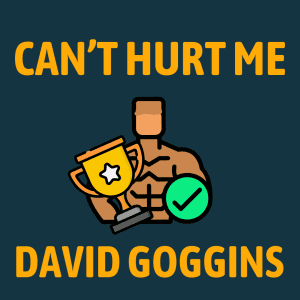
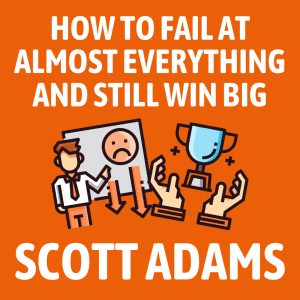



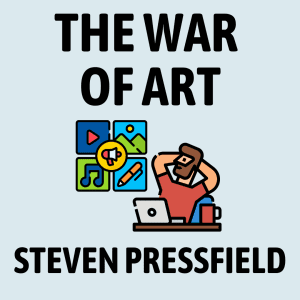
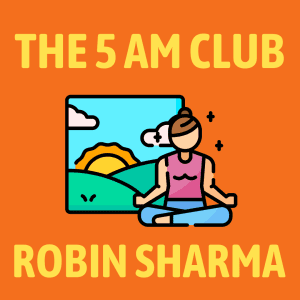
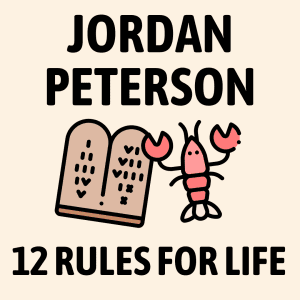
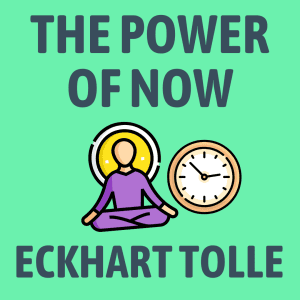
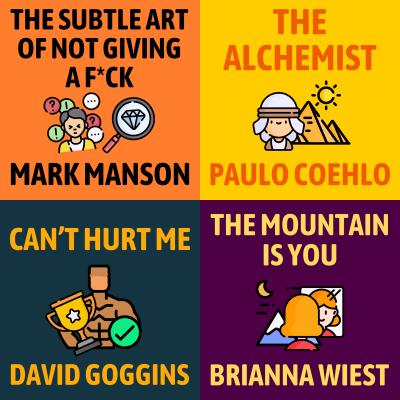


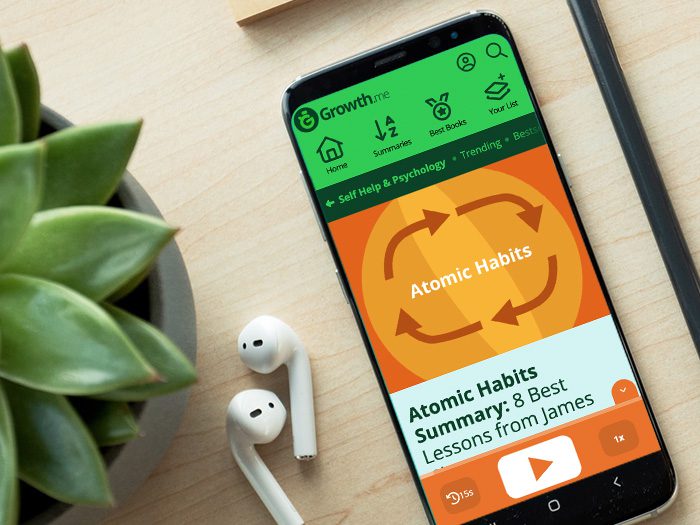
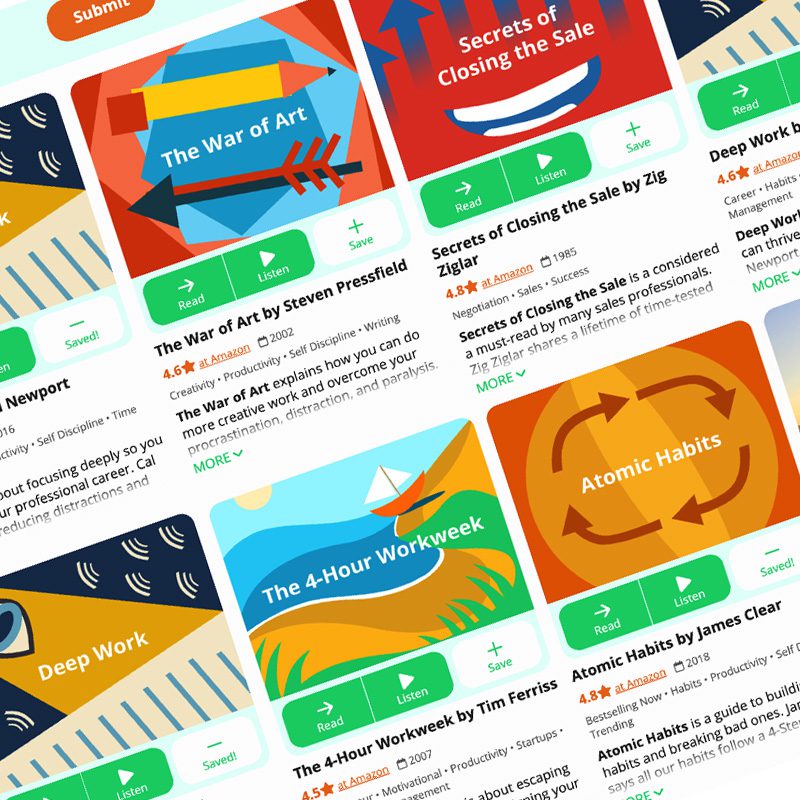
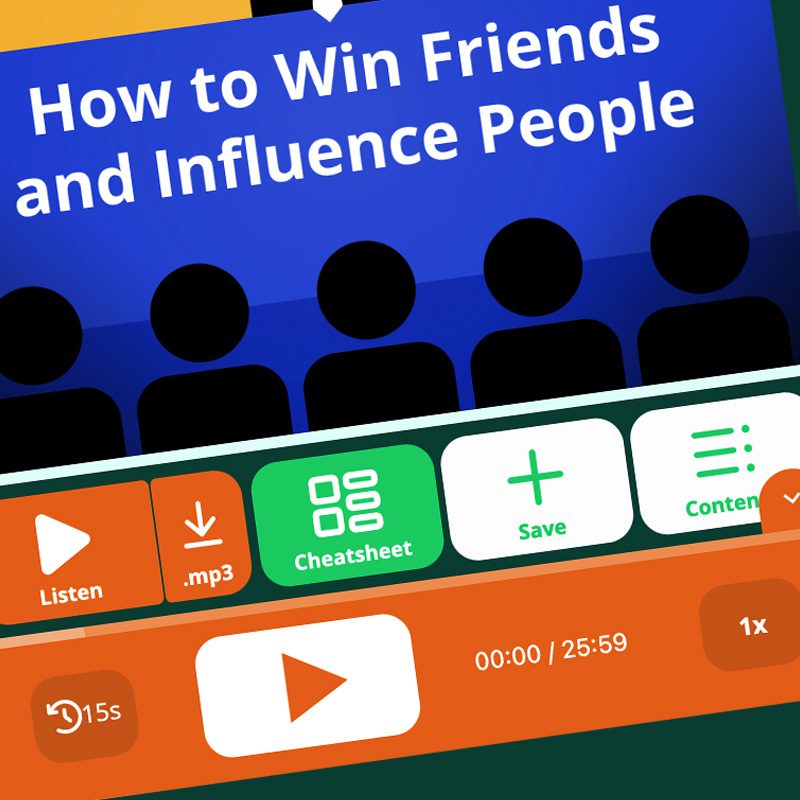
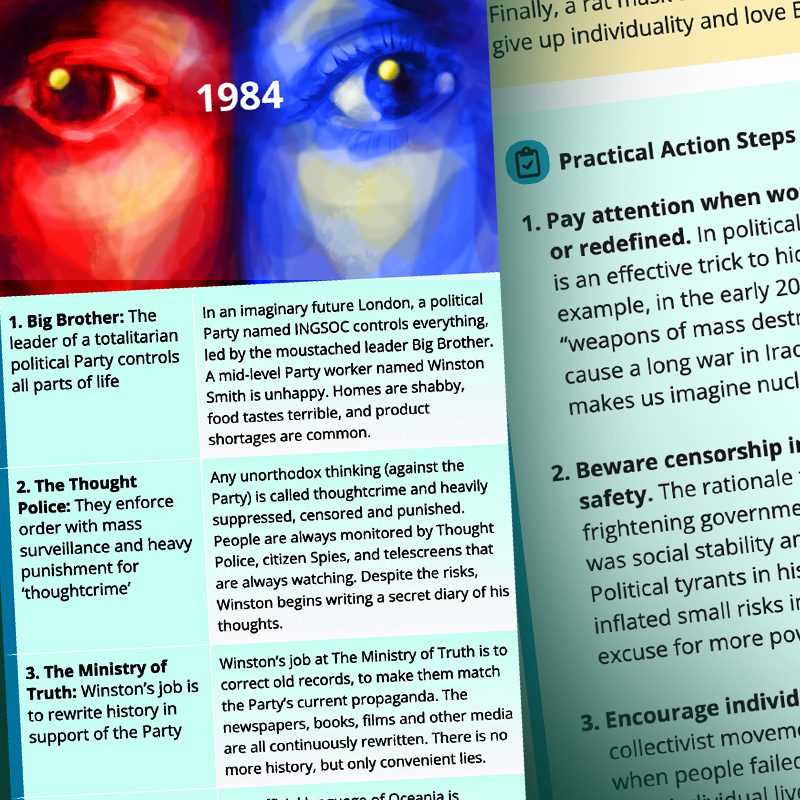

This book gave me a big lesson on how to take bold action to make opportunities for success. Highly recommended!
Great to hear! Will is an inspirational, disciplined guy!